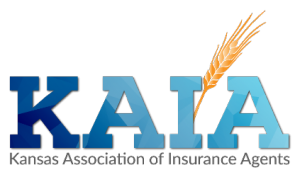2024 Big “I” Legislative Conference Recap
The annual Big “I" Legislative Conference took place April 10-12 at the Westin Washington, D.C. Downtown Hotel. During the conference, independent insurance agents and brokers from across the country heard from Big “I” staff and congressional leaders on the issues and politics impacting our industry. Most importantly, a delegation of KAIA members and staff shared their perspectives with our Kansas congressional delegation on issues important to the independent agency system.
This year's conference focused on issues that have the potential to have a real impact on every agency's bottom line. The KAIA contingent delivered this message to every member of Congress from Kansas.
Here were the four main issues of the 2024 conference that KAIA took to the Hill:
1) Oppose tax increases on Main Street America. The Big “I" supports “The Main Street Tax Certainty Act," which would make permanent the 20% small business deduction—Section 199A of the U.S. tax code—that was passed as part of the 2017 Tax Cuts & Jobs Act.
The deduction, which is scheduled to expire at the end of 2025, is heavily relied upon by many Big “I" members to keep their agencies operating, meet payroll, and better serve consumers and their communities. Pass-through entities have factored this deduction into their operations and its expiration would result in a tax increase for many small businesses. Such an increase would create an unlevel playing field and put pass-throughs at a disadvantage to businesses filing taxes at the lower corporate rate that was made permanent in the 2017 Act. Approximately 40% of members of U.S. House representatives and 33% of Senate members are already cosponsoring this legislation.
2) Address the insurance market crisis by cracking down on lawsuit abuse and encouraging risk mitigation. The property & casualty insurance market is cyclical and fluctuates between hard and soft markets. However, insurance is currently amid an unprecedented property insurance crisis.
Appropriate and suitable p&c insurance is simply unaffordable for millions of Americans, and it is altogether unavailable for a growing universe of families, businesses and individuals. These crisis conditions are not limited to areas traditionally associated with natural disasters. They are now ubiquitous and found in every corner of the country, producing troubling repercussions and ripple effects throughout our economy.
The pressure is particularly challenging for independent agents as they attempt to secure coverage for their clients and explain significant rate fluctuations while keeping their own businesses operational. Congress can do several things to help alleviate pressure on the insurance market, including taking action to reduce lawsuit abuse and promote risk mitigation.
Abuse of the legal system is a significant problem and adds considerable costs to the insurance industry that are then passed along in the prices that consumers pay. An especially troubling trend is the unchecked way foreign entities and governments are financing and subsidizing litigation in American courts. To address the problems posed by foreign interference, the Big “I" supports the “Protecting Our Courts from Foreign Manipulation Act."
This bill would require disclosure from any foreign person or entity participating in civil litigation as a third-party litigation funder in U.S. federal courts and would prohibit sovereign wealth funds and foreign governments from participating in litigation financing.
Also, catastrophic natural disasters are increasing in frequency and severity at an alarming rate and efforts to mitigate risks and reduce exposure to these events are not keeping pace. Risk mitigation makes homes more resilient, protects families from natural disasters and reduces the post-event costs that would otherwise be borne by taxpayers.
According to the Federal Emergency Management Agency (FEMA), every dollar spent on preventative mitigation measures saves approximately $6 in future losses. State governments are increasingly establishing mitigation grant programs that enable homeowners to prepare in advance for earthquakes, windstorms and wildfires but these grants are currently subject to federal taxation. The Big “I" supports the “Disaster Mitigation and Tax Parity Act of 2023," which would eliminate this federal taxation and encourage the implementation of much-needed mitigation measures.
3) Protect the Federal Crop Insurance Program (FCIP). As Congress negotiates a new five-year Farm Bill it is critical to support policies that strengthen the stability and effectiveness of the FCIP. Crop insurance is an important risk management tool that helps farmers navigate the challenges posed by weather, supply chain disruptions, and uncertain markets. The Big “I" supports a strong and robust FCIP that provides certainty for farmers and communities and is strongly opposed to any legislative or regulatory efforts to reduce FCIP funding in the new Farm Bill or otherwise weaken the efficient and effective private sector delivery of crop insurance.
4) Extend and reform the National Flood Insurance Program (NFIP). The Big “I" strongly supports reauthorization of the NFIP before its expiration and recognizes the importance of a modernized program to increase take-up rates in both the NFIP and the private market.
Specifically, the Big “I" supports H.R. 900, which would allow private flood insurance to satisfy continuous coverage requirements and ensure that consumers who leave the NFIP for the private market, but are later forced to return, can do so without penalty.
The Big “I" also opposes any policies that would harm the Write-Your-Own (WYO) Program, including WYO reimbursement reductions, and undermine the valuable and trusted role that independent agents play in the offering, sale and servicing of flood insurance. Finally, it is essential for FEMA to communicate with agents more clearly so they can explain rate setting and changes in premiums to their customers now that Risk Rating 2.0 has been fully implemented.
